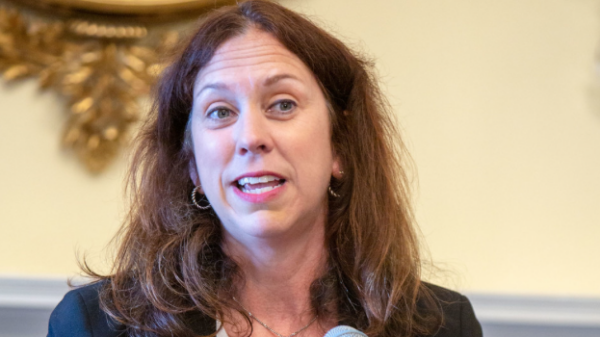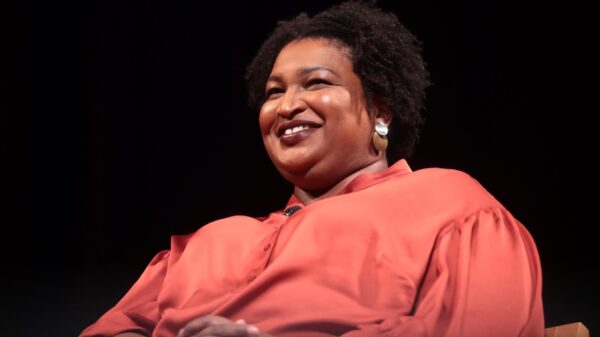
Since Roe vs. Wade, a 50-year-old Supreme Court decision intended to protect a woman’s right to have an abortion without governmental interference, was overturned, leading Republican women have started to present more impartial and empathetic approaches to abortion, but the integrity of their words may be up for debate.
“We therefore hold that the Constitution does not confer a right to abortion. Roe and Casey must be overruled, and the authority to regulate abortion must be returned to the people and their elected representatives,” Supreme Court Justice Samuel Alito said to PBS.
According to the Pew Research Center, the reversal of this decision was considered a win for the Republican party and people with conservative ideologies due to their affiliation with pro-life policies. Now, because of great disapproval, there is a possibility that this may have backfired on them.
While the issue of Roe vs. Wade has long been a major point of divide between Democrats and Republicans, according to a Pew Research study, approximately 62% of Americans – 29% being Republicans and 19% being conservatives – were not in favor of the decision being overturned.
Pro-choice voters from various backgrounds – such as political commentator Tomi Lahren, U.S. Senator Elizabeth Warren and Gen-Z-for-Change deputy executive, Victoria Hammett – have expressed their disapproval via social media and news outlets.
Nikki Haley, a former governor of South Carolina who announced her presidential campaign in February 2023, identified as “unapologetically pro-life” in a debate hosted by Fox News in August 2023. Yet, seconds after her statement, Haley took a different position on the topic. “Let’s find consensus… Let’s treat this like the respectful issue that it is and humanize the situation and stop demonizing the situation,” Haley said.
Haley and her team haven’t responded to The Hilltop’s request for comment at the time of publication.
In addition to Haley, Rep. Nancy Mace (R-SC) also expressed an empathetic approach to abortion laws. “No woman wants to go to the doctor and make the decision that she’s going to have an abortion,” Mace said in a CNN interview. “Nobody wants that [and] what are we doing to ensure that she doesn’t have to make that decision?,” Mace asked during the interview. Mace and her team have also not responded to The Hilltop’s request for a statement at the time of publication.
Haley and Mace’s viewpoints quickly went viral on social media apps such as TikTok and Instagram, which led to both women gaining political support and approval. Yet, some people don’t seem to be convinced that they are being genuine in their messages.
“I think they are becoming more neutral because they are noticing that they and their voters are having children they don’t want. They now understand that this issue affects them too,” Ameerah Thomas, a freshman philosophy major from Florida, said.
Republican women have seemed to turn on one of the main foundations of their base.
“I’ve had conversations personally with ex-self-proclaimed ‘pro-lifers’ where I presented them with realistic examples of how the reversal of Roe vs. Wade may impact Black and brown women,” Hannah Baker, a freshman political science major and Alabama native, said. “I’ve seen them squirm when their ignorance is laid bare and their prejudice is highlighted.”
According to the Pew Research Center, Roe vs. Wade has been a point of focus for Republicans for decades. While white Republican women continue to make laws regarding abortion, the women who are mainly affected are non-white women.
“Both [politicians] have significant populations of women of color within their districts who understand the pressing issues of infant and maternal mortality and access to quality healthcare in their state,” Ayana Best, an assistant professor of political science at Howard University, said.
“Both representatives may be strategically responsive to their voter’s needs but may also be using this issue to leverage support for other social issues they seek to address,” Best said.
Chelsea Mason, a freshman student at Howard University from Maryland said, “When something happens to minorities or LGBTQ+ people, they don’t care… Now that this issue affects them, [they] have an opinion, even though they won’t be hurt by it as much.”
According to Reuters, Black women have been proven to bear the burden of medical disadvantages and anti-abortion laws. Research from the National Institutes of Health has shown that Black women are four times as likely to have an abortion than white women.
Given the fact that Black women are most likely to live in states with restrictive abortion laws, and the maternal death rate for Black women is highest among women of color, Black women are primarily affected by this issue, as reported by Reuters.
According to Reuters, statistics reveal that Black women disproportionately experience the negative impacts of maternal risks. The lack of representation of Black women among pro-life supporters, coupled with abortion legislation ignores a prominent racial aspect in the national conversation around abortion and women’s rights.
“Republican women can pivot their viewpoints on very controversial and important topics whenever it benefits them, when in reality these issues, such as abortion and healthcare, have a much larger impact,” freshman political science major and Colorado native, Alaijah Sims said.
Since Black women are primarily impacted by Roe vs. Wade, there is an increasing incentive to include their voices in this discussion for the sake of their protection.
“Since y’all have such trouble looking at racism, you do your best to remove women of color from the conversation, making misogyny look less substantial than it is,” said queer content creator, Saint Peters in her Tik Tok video regarding the initial reactions to Roe vs. Wade.
“Which hurts you… but it hurts women of color even more,” Peters said.
Copy edited by Whitney Meritus









